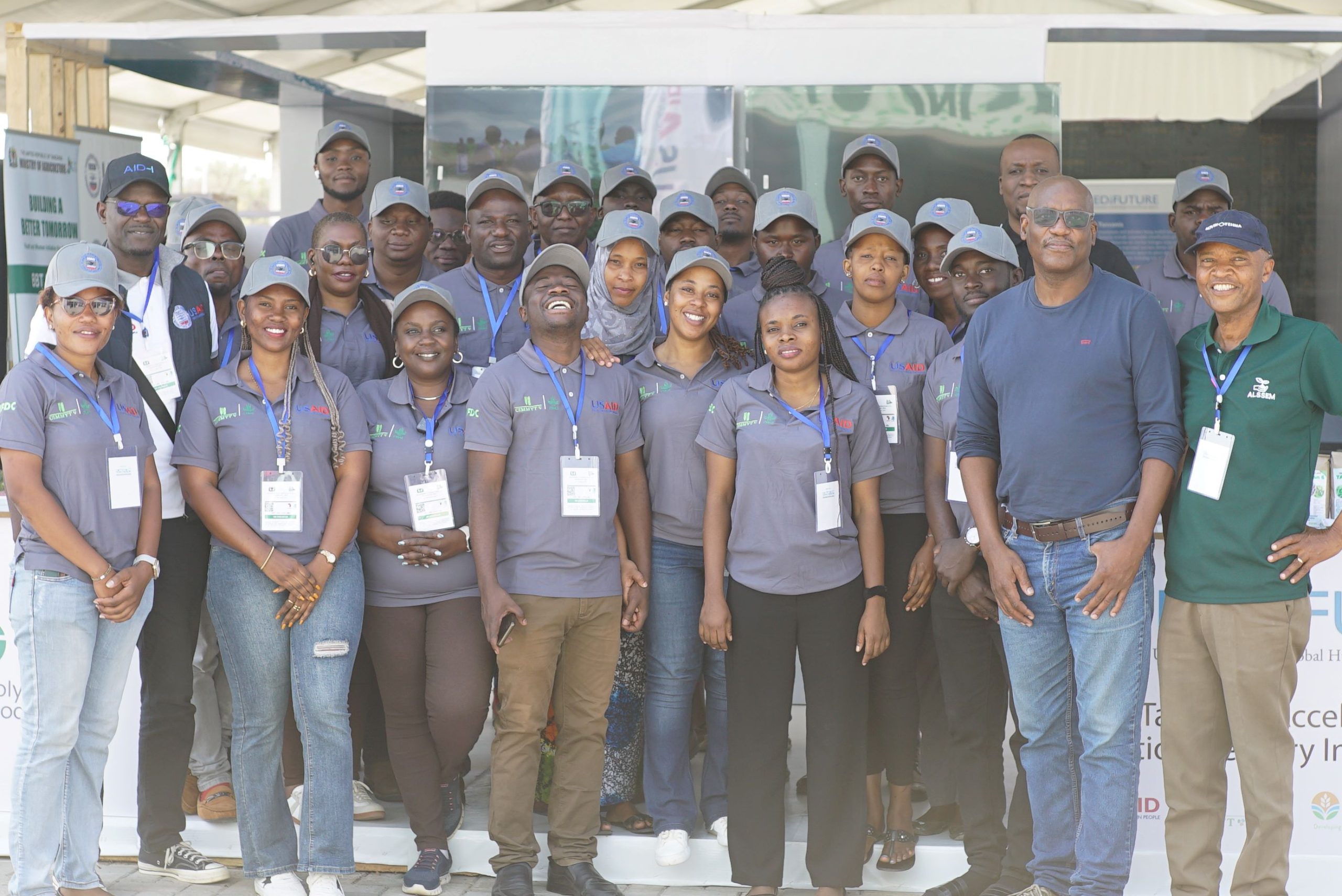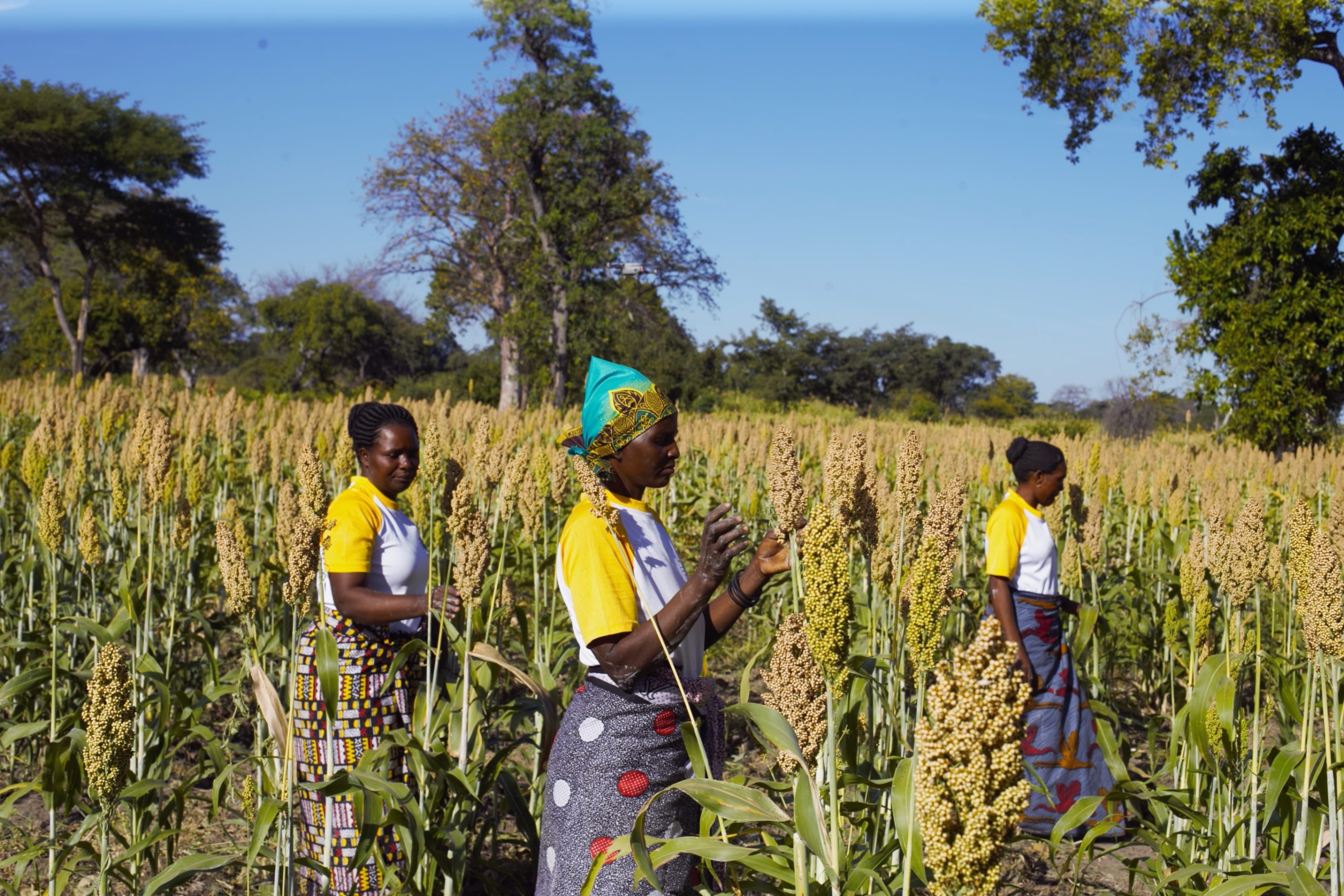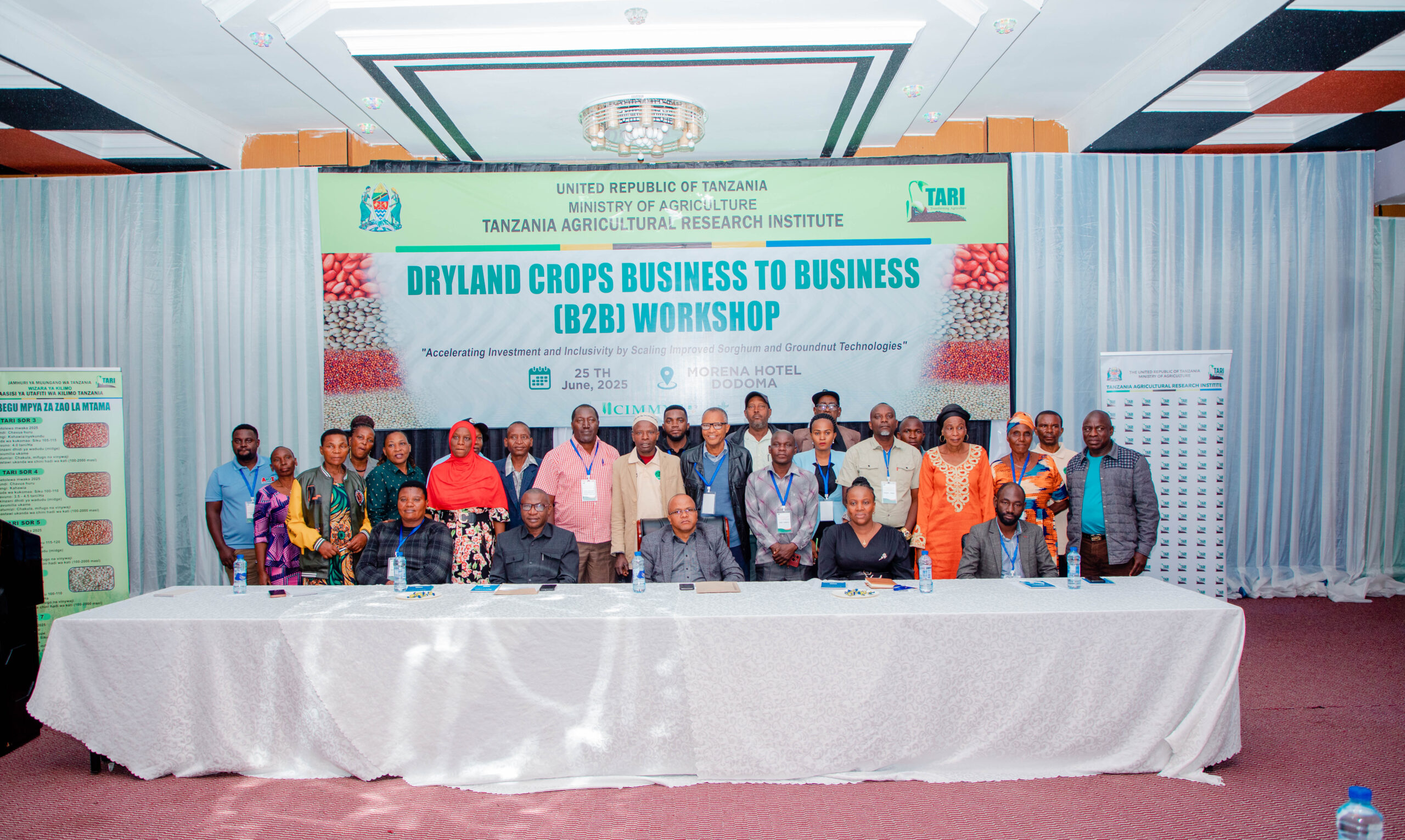
A Stronger Seed System for Lasting Impact
In Tanzania, the seed sector operates through a blend of formal, semi-formal, and informal systems. Together, these systems connect public and private sector actors involved in research, early generation seed production, distribution, and regulation.
At the heart of this system, CIMMYT and the Tanzania Agricultural Research Institute (TARI) have led efforts to strengthen seed delivery for dryland crops like sorghum and groundnut. Through strategic partnerships and market-responsive models, they aim to get improved seed varieties into the hands of farmers—on time and at an affordable price.
To accelerate these efforts, a Business-to-Business (B2B) Forum was held to foster investment and link key players across the sorghum and groundnut value chains. The forum was a space to co-create strategies, showcase innovations, and build partnerships to scale up delivery models and adoption of new technologies in Tanzania’s drylands.
Building Resilience Through Research and Collaboration
Dryland agriculture in Tanzania holds untapped potential, despite challenges. Over the past decade, CGIAR centers working with NARS have developed stress-tolerant, farmer-preferred varieties supported by improved agronomic practices.
- For sorghum, at least seven improved varieties are now available, featuring traits like Striga resistance, high yields, and adaptability for food and brewing.
- For groundnut, eight varieties offer drought resistance, disease tolerance, and higher nutritional value.
Yet, average yields remain low—about 1.1 t/ha for sorghum and 0.7 t/ha for groundnut. This disconnects between research success and on-farm productivity highlights the need for a holistic, market-responsive approach that goes beyond variety development to tackle constraints along the entire value chain.
Scaling Up Quality Seed
Tanzania is working toward seed self-sufficiency by 2030, which calls for stronger systems and more capacity among local seed producers, especially women and youth.
The B2B forum spotlighted some of the newest varieties developed by TARI and CGIAR, responding to drought, pests, and diseases while meeting market demand for food, feed, processing, and brewing. Investors and entrepreneurs learned how these varieties are not just research products—they’re business opportunities.
Table 1: Recently Released Sorghum and Groundnut Varieties: Traits and Market Positioning
| Value Chain | Variety Name | Year of Release | Key Characteristics | Positioning Insights |
| Groundnut | TARIKA 1 & TARIKA 2 | 2024 | • Tan seed color • Maturity: 90–100 days • Yield: 1.5–2.0 t/ha • Rust and leaf spot resistance • Medium-sized seeds • Suitable for confectionery and processing |
Fit within the medium-tan market segment. Poised to replace Tanzanut 2015 and Mtwaranut with earlier maturity. |
| Sorghum | TARISOR3, TARISOR4, TARISOR5 | 2025 | • Brown seeded • Maturity: 105–115 days • Yield: 3.7–4.5 t/ha • Midge resistant • Drought tolerant • Used for food, feed, and brewing • Adapted to altitudes of 100–2000 m |
Replacing TARISOR1 with shorter maturity and improved traits. |
| TARISOR6 | 2025 | • White seeded (Hybrid) • Maturity: 100–110 days • Yield: 4.1–5.0 t/ha • Suitable for food, feed, and brewing • Adapted to altitudes of 100–2000 m |
First hybrid sorghum developed by TARI; high yield potential. | |
| TARISOR7 | 2025 | • White seeded • Maturity: 85–90 days • Yield: ~4.0 t/ha • Midge resistant • Drought tolerant • Used for food, feed, and brewing • Adapted to altitudes of 100–2000 m |
Linking Business, Policy, and Farmers
With over 100 participants, the forum brought together a wide range of actors—from seed producers to financial institutions, processors, and agribusinesses.
Key institutions like the Cereal and Other Produce Regulatory Authority (COPRA) and the National Economic Empowerment Council (NEEC) were present to explain how policy frameworks can support private sector engagement and rural entrepreneurship.
NEEC also shared tools to help SMEs access financing and grow sustainably, while COPRA emphasized the importance of regulatory alignment to improve market systems.
Matchmaking for Growth
A matchmaking session helped connect businesses with partners across the value chain. Here are some highlights:
Table 2: Business Matchmaking Outcomes from the B2B Forum
| Service Provider | Customer/Partner | Business Discussions |
| Agricom | Kilimo Tumaini la Jasiri (KITUJA) | Discussed labor-saving technologies, including groundnut shelling and cleaning machines. The conversation focused on machine functionality. Contacts were exchanged for follow-up. |
| EONICE Food Products | Explored how Agricom’s linkages with financial institutions could help EONICE access loans to scale its operations. | |
| NEEC | Seasoning Pallets (Processor) | Sought linkage to financial institutions offering affordable loans for agribusinesses. |
| TOSCI | QDS Producers | Discussed the high cost of QDS seed packaging. The ODS producers requested a review of packaging costs to improve business viability. |
| MAFADA Kilimo Trust | BRAC Maendeleo DASPA ALSSEM |
Discussed potential collaboration on seed access and distribution. |
| CIAT | Multiple stakeholders | Engaged on availability and accessibility of bird deterrent technologies and herbicides for sorghum (Haimax) and groundnut (Fennut). Contacts exchanged for future follow-up. |
| TARI | Olipa Mahala (Farmer) Kikundi – Jukwaa la Wanawake Wakulima Chamwino Gairo – Morogoro |
Discussed soil suitability and agronomic practices for sorghum productivity. Farmers expressed interest in timely seed acquisition aligned with the cropping calendar. |
| BRAC Maendeleo | ALSSEM | Focused on linking BRAC-supported farmers to ALSSEM for access to sorghum seed in the upcoming season. |
| FARM AFRICA | Zoisa Seeds Singidan Seed Company |
Matchmaking aimed at market linkage through village-based advisors. Agreed on collaboration for technology dissemination and joint sorghum demo plots to raise awareness and boost seed demand. |
| ITRACOM | QDS Farmers | As a new fertilizer company, ITRACOM agreed with QDS farmers to establish demo plots to assess fertilizer performance. Discussed potential for the QDS farmers to become fertilizer agents. |
| A to Z Company | QDS Farmers Vejos |
Focused on access to aflatoxin control products (Aflasafe). Farmers expressed interest in purchasing during the cropping season. Also discussed packaging materials and silage bags, with several clients showing interest. |
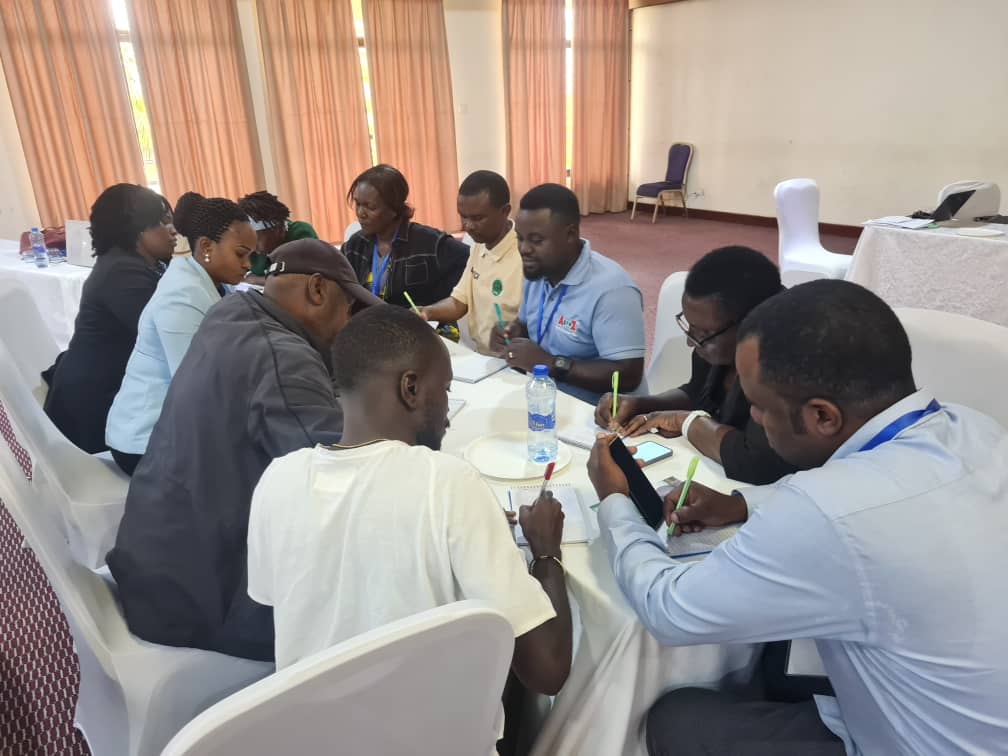
The Way Forward
Quality seed is fundamental to agricultural transformation. But impact at scale requires an approach that engages the entire value chain—from breeders to agro dealers.
The B2B forum demonstrated that there’s strong interest and momentum across the sector. Participants identified clear strategies to unlock adoption, scale production, and improve last-mile delivery—alongside policy reforms and investment pathways.
“Seed is more than an input—it’s a gateway to resilience, better livelihoods, and national food security. With the right partnerships, we can transform dryland agriculture,” one panelist noted.
As Tanzania invests in its seed sector, the future of sorghum and groundnut farming looks promising—and profitable.
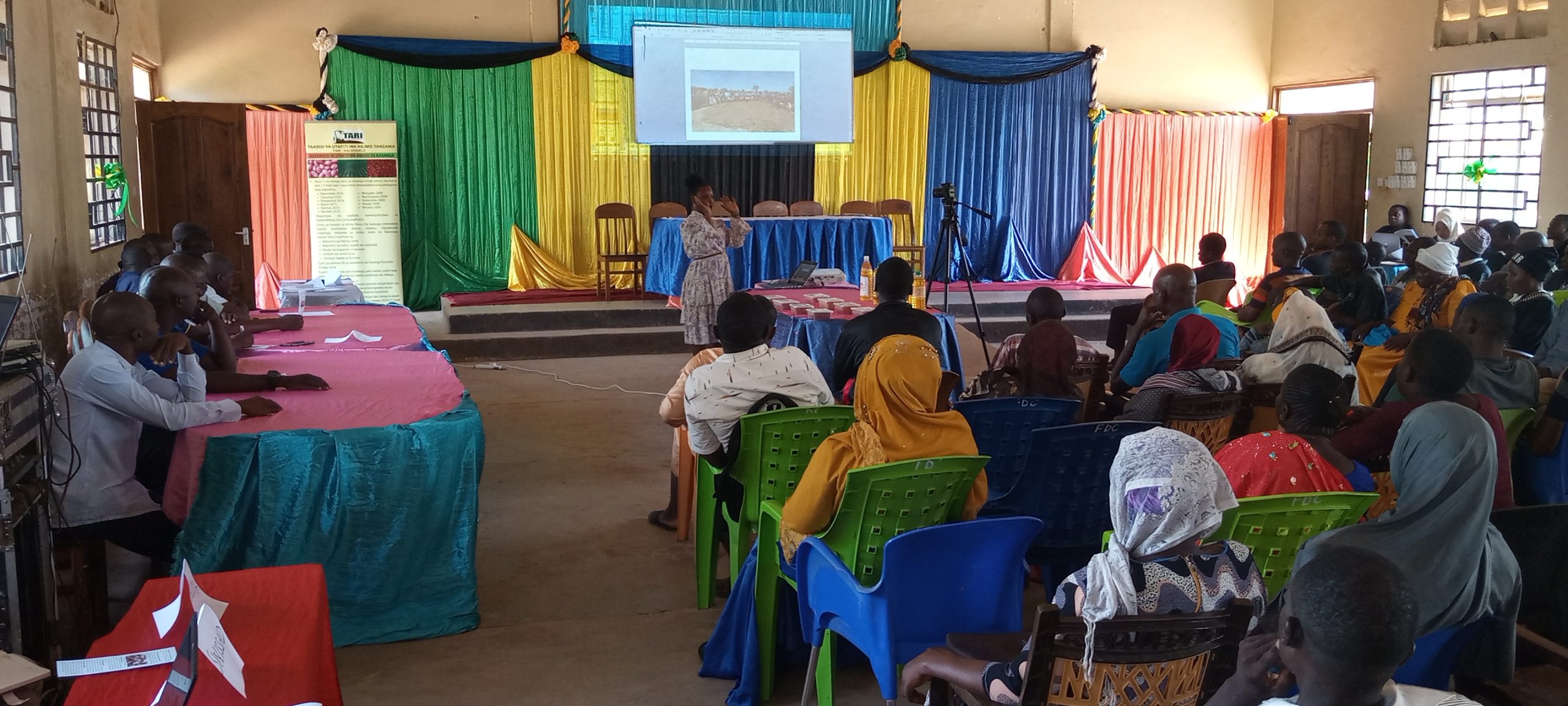
 Innovations
Innovations 